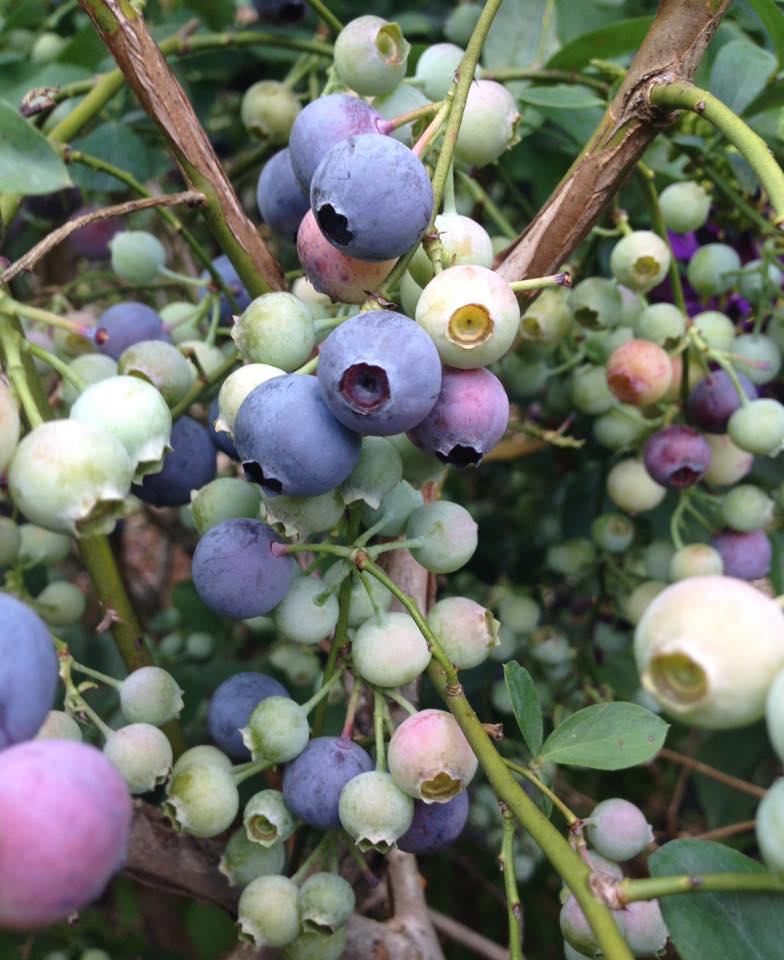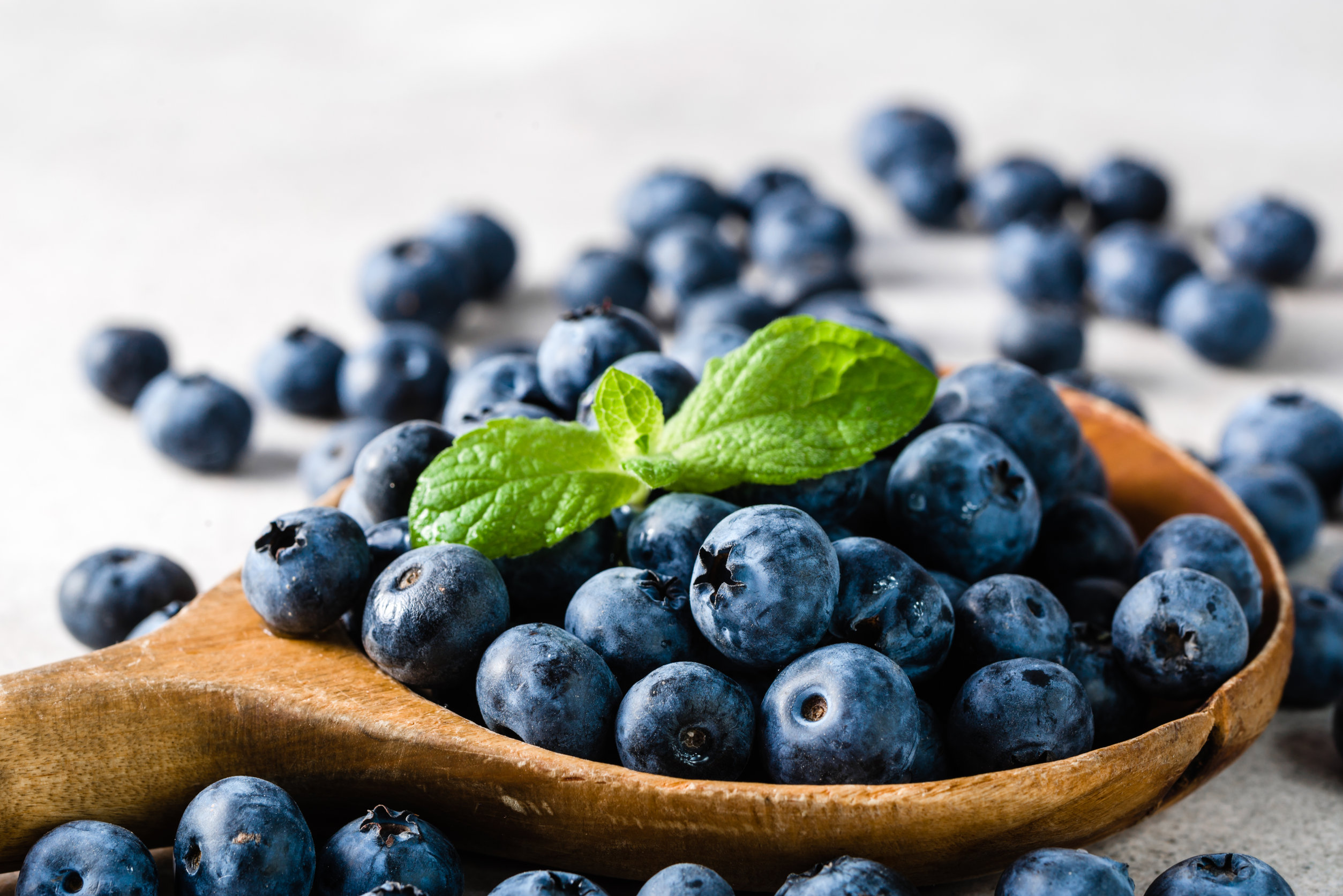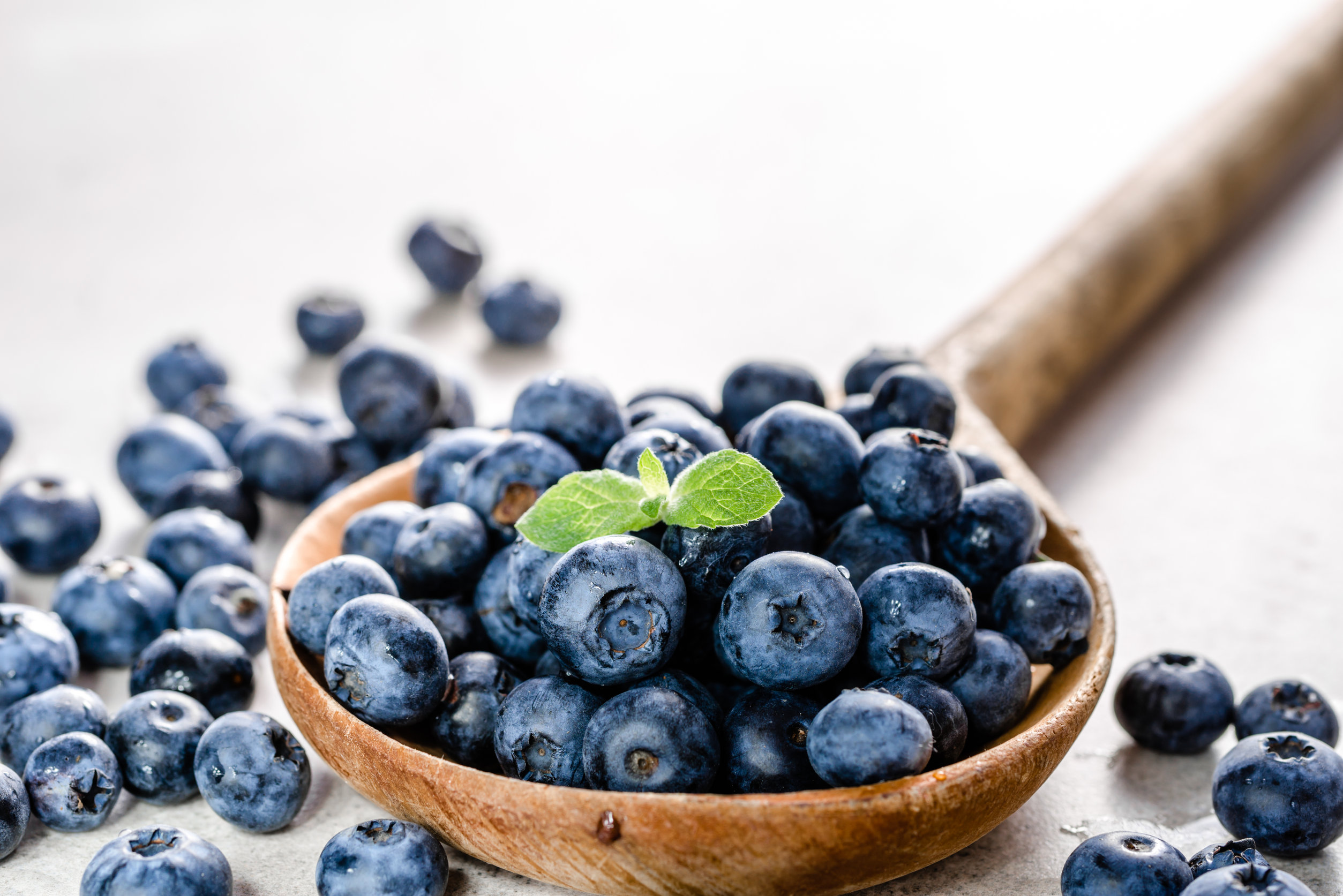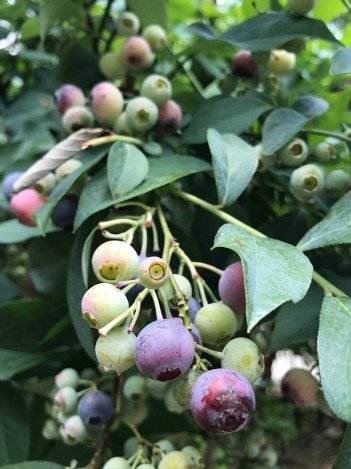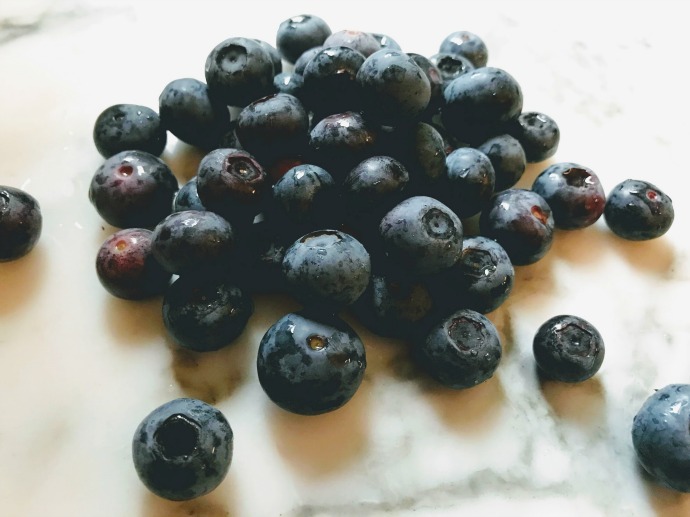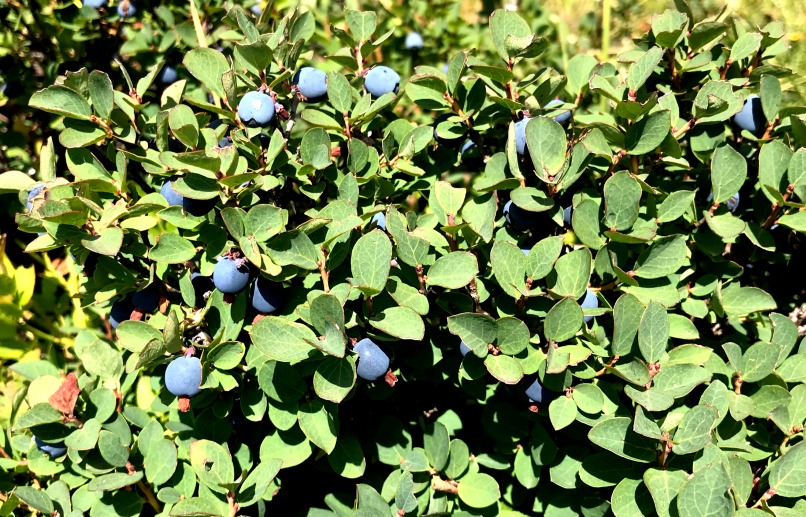Antioxidant Berries and Macular Degeneration
Antioxidant berries - which one comes to mind when you think of this word. During the summer months, we enjoy the health benefits of blueberries, blackberries and raspberries, all growing in our backyard.
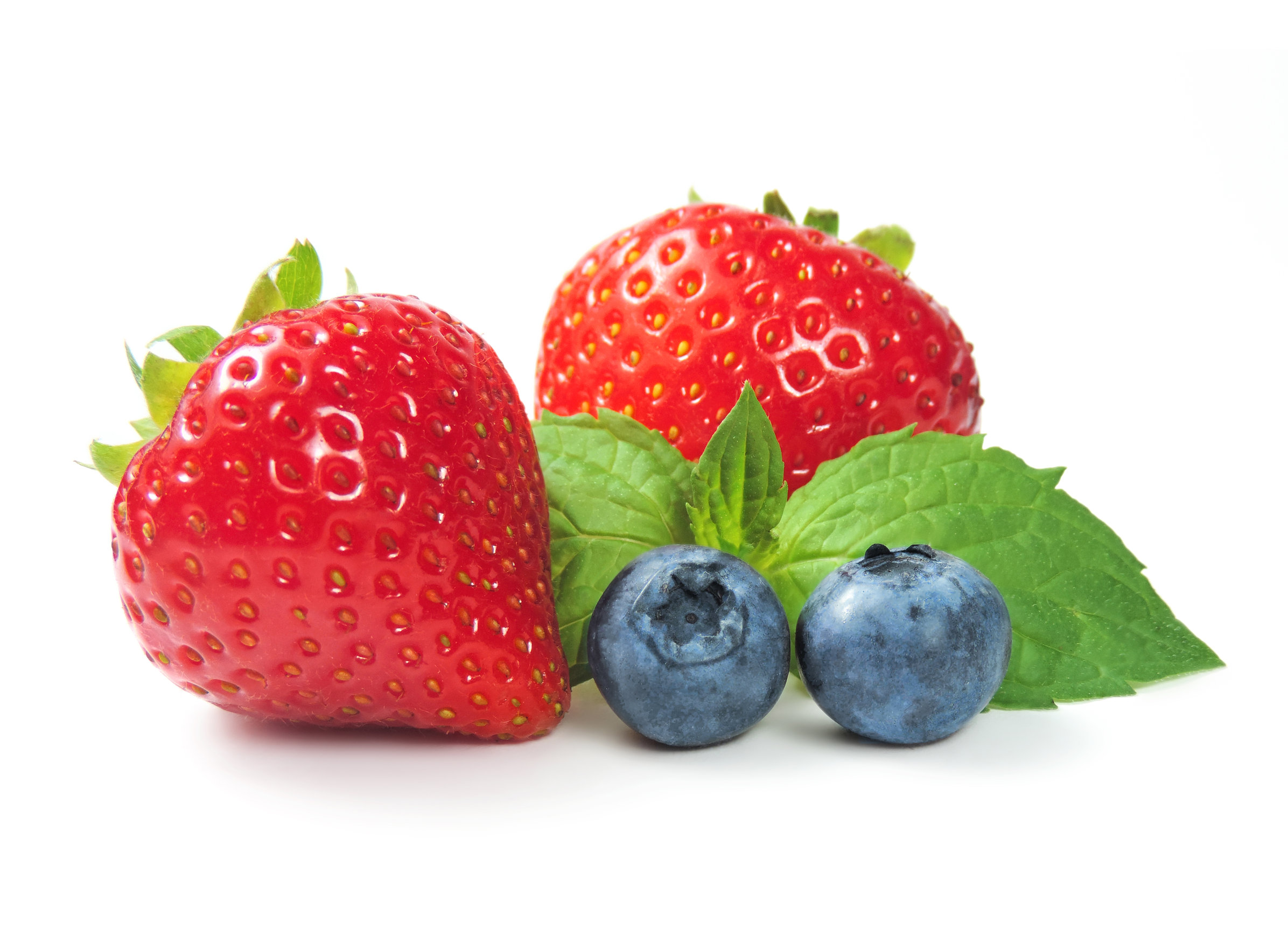
Actually there are health benefits to eating any of these antioxidant rich foods which provide protection from free radical damage. When it comes to eating foods high in antioxidants, variety gives your body a broad spectrum of essential nutrients to fight free radical damage.
Free radicals damage our bodies at the cellular level. Antioxidants help keep our bodies in oxidative balance so there is less damage to the cell membrane and the DNA. Free radical damage is a key player in aging and many degenerative diseases like macular degeneration.
There is lots of good research that validates the benefits of antioxidant activity. As a result many people have started taking antioxidant health supplements. Eating antioxidant rich food offers many benefits over supplementing with single, isolated antioxidants. They are:
1) Provide many cofactors and combination of nutrients that offer more protection than a single, isolated nutrient.
2) Offer a slow release and steady and more sustained protective effect.
Supplements often result in a brief spike in blood plasma antioxidant levels.
Health Benefits of Blueberries
Wondering what are the health benefits of blueberries? These powerful antioxidant berries actually help strengthen capillaries and reduce inflammation.
The good news is that this antioxidant rich food is low on the glycemic index level meaning the berries won't spike your insulin levels like some other fruits do.
USDA scientists Dr. Ronald Prior and Dr. Guohua Cao have demonstrated that these wonderful berries contain the highest antioxidant capacity of the 40 different fruits and vegetables tested.
The health benefits of these powerful, antioxidant rich berries include improved memory and reduced oxidation. Oxidation leads to aging and degenerative diseases, like macular degeneration.
In the article Protective Effects of Blueberry Anthocyanins Against H 2 O 2-Induced Oxidative Injuries in Human Retinal Pigment Epithelial Cells, the authors concluded, "These combined results supported the hypothesis that blueberry anthocyanins could inhibit the induction and progression of age-related macular degeneration (AMD) through antioxidant mechanisms."
"The antioxidant characteristics in blueberries appear to be due largely to anthocyanins," said Dr. Prior, whose has been a key researcher in the role of antioxidants. "The wild variety contain one of the highest anthocyanin levels of berries commercially available in North America."
We get to enjoy the health benefits of blueberries year round at our house. With 8 blueberry bushes in our backyard we freeze the extra blueberries to use in our antioxidant rich berry smoothies.
Include these berries in your eye health diet. Not only are they are a rich source of antioxidants including carotenoids, but they also provide us with vitamin C, vitamin E and minerals such as magnesium and manganese.
The blue in blueberries is from the anthrocyanin pigment. The word anthocyanin is a Greek word meaning plant (antho) and blue (cyanin).These compounds have "P-vitamin" functions in humans, strengthening capillaries and peripheral circulation.

This is what ophthalmologist Steven G. Pratt has to say about blueberries, "Blueberries are such powerful health promoters that if you ate only three Superfoods, blueberries, along with wild Alaskan salmon and spinach, you would be ahead of the game."
If you want a practical and helpful book on making simple changes in your diet that can impact your health this is the book to get:
SuperFoods Rx: Fourteen Foods That Will Change Your LifeHealth Benefits of Wild Blueberries
Wild blueberries well .... they grow in the wild like these bushes we came across while hiking in Switzerland.
They are smaller than traditional blueberries and are full of flavor. Not only are they full of flavor they are full of several healthy vitamins and minerals.
According to Nutrition Advance, wild blueberries contain "higher quantities of certain minerals such as calcium, magnesium, manganese, zinc, and more."
But the most significant distinction between cultivated and wild blueberries is the amount of polyphenols which may contribute to improved vascular health. For a more complete analysis on the health benefits of wild blueberries ..
Wild Blueberries: Nutrition Facts and Health Benefits
Flavonoids are a diverse group of phytochemicals found in many fruits. However, some sources are better than others. Usually, the more deeply-hued the plant, the more flavonoids it provides. Dark berries, such as blueberries, dark cherries, strawberries, and cranberries are all good sources for flavonoid antioxidants offering some of the highest anti-oxidant benefits.
Go from Antioxidant Berry to Antioxidant Foods
Go from Antioxidant Berry to WebRN Macular Degneration Home
Would you like to be updated on:
√ The latest Clinical Trials?

√ Prevention of Macular Degeneration?
√ Tips for Daily Living?
√ Food Suggestions for a Macular Degeneration Diet?
√ Ideas on Visual Aids to Maximize your Sight?
If you said "yes" to any of the above, sign up for my monthly Macular Degeneration News.
